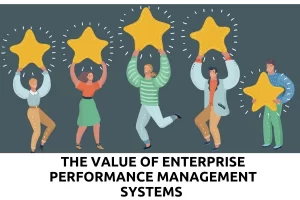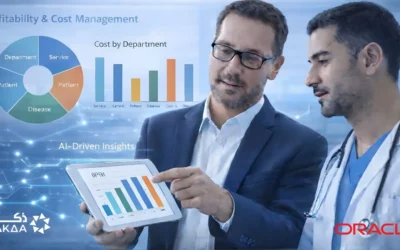In today’s world, businesses are in need of systems that offer transparency and visibility of processes.
To succeed in the ever-dynamic economic conditions, it is essential that as a business we implement solutions that give us an edge to enable us to perform at maximum efficiency levels.
Enterprise Performance Management has taken a premium stance in facilitating this for organizations at a global scale.
What are the advantages of Enterprise Performance Management?
Process Alignment
EPM (Enterprise Performance Management) enables the different segments of an organization to work in a collaborative manner.
This means that because the various functions are dependent on each other and need to seek information from each other in order to execute tasks, Enterprise Performance Management comes in to facilitate smooth flow of information amongst these various functions.
The functions here refer to Finance, Human Resource, Sales and Marketing, Procurement and Production.
It leads to process automation, providing more structure.
This results in improved systems that boosts efficiency levels.
Improved Planning
Enterprise Performance Management boosts an organization’s planning process.
By incorporating tools for planning and budgeting & forecasting, it equips businesses to foresee the future.
With the availability of business analytics, it becomes very smooth for a business to predict what should be expected in the near future.
This predictability facilitates planning ahead of time which largely contributes to business success.
Improved planning enables businesses to stay ahead of competition and tackle uncertainties in a well-structured manner.
Cost Management
Cost is a major factor that businesses always look out.
Businesses that have full transparency of their costs will always be able to make more informed decisions.
Enterprise Performance Management provides a platform that gives organizations a full view of the cost position of each business segment.
By clearly breaking down the cost behavior of each division, product, branch etc, management can easily gauge the profitability levels of each segment and make decisions on how to manage these various divisions.
Cost is a significant factor in decision making and determines the direction an organization takes.
Better Reporting
Having access to accurate and relevant data is a major contributor to organizational success.
Data driven decisions pave the way to excellent performance. Enterprise Performance Management is a solution that achieves the perfect balance between data collaboration and flexibility.
By permitting combination of company-wide data on one platform and customizations of reporting at the same time, decision makers can now access reports in an organized manner.
Rather than manually formatting and configuring reports, Enterprise Performance Management automates this process and as a result, businesses have experienced improved efficiency as manpower can now be utilized for more strategic activities.
Improved Performance
With all the factors mentioned above, the transparency, collaboration and clarity that comes with Enterprise Performance Management leads to efficient resource allocation, improved decision making and time saving.
All these will lead to improved functioning of an organization as resources will be utilized at optimum levels.
With Enterprise Performance Management, a business experiences consistent growth and increase in profitability as a result of improved control and insight.
How do Business Functions Benefit from Enterprise Performance Management?
Finance – can use it for efficient and effective planning and budgeting.
This can help them be in control of numbers and ensure that a company is headed in the right direction.
EPM ( Enterprise Performance Management ) gives a finance department visibility of different cost factors hence this allows systematic decision making.
Human Resources – EPM helps human resource manage staff better by planning in advance for any future requirements and managing set KPIs for individuals in an organization.
Procurement – By giving supply chain the flexibility to see how fast a product moves, procurement can make coherent decisions on when to place orders in order to ensure over stocking and product outages are avoided.
Sales and Marketing – EPM supports these functions by providing them with the capacity of managing campaigns and handling customer interests and queries in an organized way.
By facilitating the organization of information pertaining to campaigns and sales activities, Enterprise enables quick decision making regarding campaign choices and sales activities.
It becomes easy to know what campaigns should be repeated, dropped and so on.
Through our business advisory services, our Hyperion Oracle, Oracle EPM and PBCS Oracle solutions can cater for your EPM needs.
Get in touch with us here to get your Enterprise Performance Management today with our business consulting services.
Read More articles about Business Intelligence
Implement Oracle Business Intelligence
How is Business Intelligence Transforming Business?
The Benefits of Business Intelligence to your business
From Oracle Business Intelligence Enterprise Edition (OBIEE) to Oracle Analytics Server (OAS)





